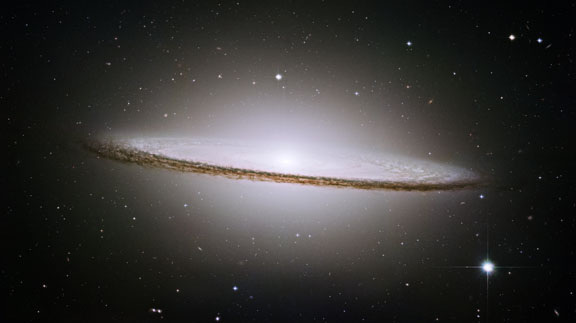
The show also explores the tranquility of space, as Dave spends several minutes floating outside the ship, staring into the emptiness of the universe. During this segment of the live show, every member of the audience has white light laser pointers that they shoot to the ceiling to replicate stars as ambient music plays in the theater.
Just listening to the podcast version in my car, I was amazed out how the show sounded, and wished I could have experienced the live show. Just recently, my interest was resparked in a similar fashion when I listened to another interview with astronaut Chris Hadfield, author of his newly released book, "An Astronauts Guide to Living on Earth". In the interview, he talks about the incredible changes the body goes through in space, which inspired me to look further into what exactly goes on, and how astronauts prepare for such rigorous travels. Without gravity, our bones, muscles, and cells do not work as hard, which causes a lot of interesting side effects, both short and long term. Here are a few bullet points on what happens when an astronaut goes into the great unknown:
Loss of Muscle and Bone Mass: Astronauts must work out two hours everyday, seven days a week, in order to maintain a healthy level of bone and muscle density. Without exercise, the crew would have difficulty performing tasks in space and, if an emergency occurred, it could put the team in a very vulnerable position due to weakness. The loss of bone mass can also make it difficult to walk after returning to Earth. Physical therapy is undergone when the crew returns home to regain size, but getting back your bone mass can be difficult if a lot of it is lost.
Although it is not fully understood why, the human body excretes a large amount of calcium and phosphorus when the body becomes weightless, causing boss loss. Going from Mars to Earth would result in the same equivalent of half a lifetime on Earth for our skeletal system. Proper training at home after return can take months to fully restore the lost bone mass.
Abnormal Blood Circulation: In a zero gravity environment, our blood flow is disrupted. Usually, our blood must work against the continues pull that we experience on Earth, but in space, this normality is removed. This results in a rush of blood to the upper body much faster than what humans are accustomed to, since blood does not pool as much in the legs. All those yoga poses you see people do with their feet in the air with their head on the ground make a lot more sense now, right? All of this leads to an increased heart rate and raised blood pressure. Side effects include headaches, nasal congestion, and super skinny legs.
Space Sickness: You think it's bad out at sea? Just wait till your floating hundreds of miles above the Earth's surface with no sense of balance. Vomiting, headaches, and general dizziness are the norm. In fact, almost half of all space travels experience these symptoms the first couple days of flight.
Lack of Balance: Our sense of orientation relies heavily on inner ear and muscular sensors to find terrestrial clues about our environment. This system is rendered useless when in an anti-gravity situation, making astronauts feel disorientated or uncoordinated. Instead, the crew must use visual cues to establish the barrings, but even this can be difficult as the notions of what is "up" and what is "down" are completely irrelevant in space. No doubt, this is a big reason why the team can become so prone to motion sickness.
Weaker Immune Systems: Scientists have been analyzing studies done in space that show lack of sleep and isolation may weaken an astronaut's immune system, making the susceptible to sickness and infection. This is caused from a weaker than normal T-lymphocyte system which could lead to allergy problems as well. Being an unfamiliar environment, astronauts will have to work harder to combat these changes in the bodies as scientists work to find new drugs to aid them.
Disrupted Sleep: Think you get cranky when you don't get your full eight hours? Astronauts must deal with constant noise from the space shuttle and experience irregular shifting patterns of light and dark depending on where they are in space in relevance to the sun and the planets. Fatigue can easily set in, especially with the disruptions of the human's normal day/night cycle.
You Stink: "Welcome to Space: Please Don't Use The Water". This could very well be the motto of most space flights. In an environment so perilous, you can imagine the precautions astronauts must take to keep rations of water stable. This means strict regulation of water distribution. And when water is used, you can bet the first priority is going to be for drinking. As for cleaning yourself? Well, lets just say it would be best to imagine yourself on a long camping expedition. Astronauts are given a plentiful supply of moist towelettes to use for daily scrubbing, but showers are more of a luxury experience. Best keep your distance from your co-workers if you want to be polite.
As you can see, astronauts have their work cut out for them. Every new journey into space is another chance to experiment and improve the living conditions they must endure. Let's hope they smooth out the rough stuff before they begin taking volunteers for the flights to Mars. And, by the way, that's coming very, very soon.
Click here to hear Radiolab Live: Dark Side of the Earth
--------------------------------
Your Body in Space: Use It or Lose It
Known effects of long-term space flights on the human body
Gravity Hurts (So Good)
What if an astronaut went on a space walk without wearing a space suit?



